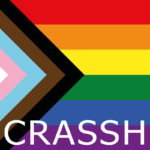| 26 Apr 2023 | 10:00 - 18:00 | Rooms SG2, Alison Richard Building, 7 West Road, Cambridge | |
- Description
- Programme
Description
Keynote speakers
- Che Gossett (Columbia University)
- R. Sánchez Rivera (University of Cambridge)
Convenors
- Gabby Colangelo (University of Cambridge)
- Aaron Muldoon (University of Cambridge)
- Brooke Nagler (University of Cambridge)
Summary
‘The (Im)possibility of Queer Presentism’ conference explores what it might mean for contemporary queer culture and politics to adopt ‘presentism’ as a way of both looking at and living in the world. Since its inception in the early 1990s, queer theory and its predecessor, Gay and Lesbian Studies, have been principally concerned with time. Much work in gay history in the 1980s was singularly occupied with demonstrating that “we have always been here,” while the social constructionist turn heralded a new wave of research concerned with understanding how exactly gender and sexuality have been historically constituted. The HIV/AIDS crisis prompted an urgent movement towards memorialisation and community memory projects. Since then, queer theory has largely stayed true to its founding mottos of “know your history,” and “never forget.”
The aim of this conference is to encourage participants—both speakers and attendees—to think about how an overriding interest in the past might eschew the possibility of understanding queerness in the present.
A presentist bias might seem to threaten various projects central to queer identity and community formation such as memorialisation, archiving and the reclamation of erased pasts. But to what extent do these very projects restrict our thinking to a teleological historical narrativisation in which the queer past is read for its ability to frame or even create a more coherent queer present. This conference aims to prompt questions about the fixity of this relationship between history and the queer present.
The conference comprises two panels of speakers followed by two keynote addresses. We are delighted that R. Sánchez-Rivera (University of Cambridge) and Che Gossett (Columbia University) will both be delivering keynote addresses.
The conference will be followed by refreshments in the atrium of the Alison Richards building at 16:00, leaving enough time for those attending the Judith Butler lecture, ‘Who is Afraid of Gender’ at 17:00 to make their way across to West Road Concert Hall.
Supported by:

Please contact us for specific accessibility needs, and we will do our best to accommodate any requests.
Programme
| 10:00 - 10:15 | Welcome and introduction |
| 10:15 - 11:30 | Panel 1 ‘Sontag and lister: diaries, queer expression, and presentism’ ‘Deploying trans-presentism: chronicling detransition through transgender fiction’ ‘And this secret still keeps my tongue in chains’ intertextuality and queerness in Proust’
|
| 11:30 - 12:00 | Refreshments |
| 12:00 - 13:30 | Panel 2 ‘Fucking with the past/future to destroy time as we know it: a queer crip attempt to do what we do best’ ‘Frank O’Hara and the poetics of the ‘Now’ ‘Towards a presentist lesbian history: Tessa Boffin’s “The Knight’s Move”’ ‘In defense of queer historicism’ |
| 13:30 - 14:00 | Lunch |
| 14:00 - 15:00 | Keynote: ‘Queering Covid: a synergistic approach to theorizing pandemic inequalities’ |
| 15:00 - 16:00 | Keynote: |
| 16:00 - 17:00 | Refreshments |



